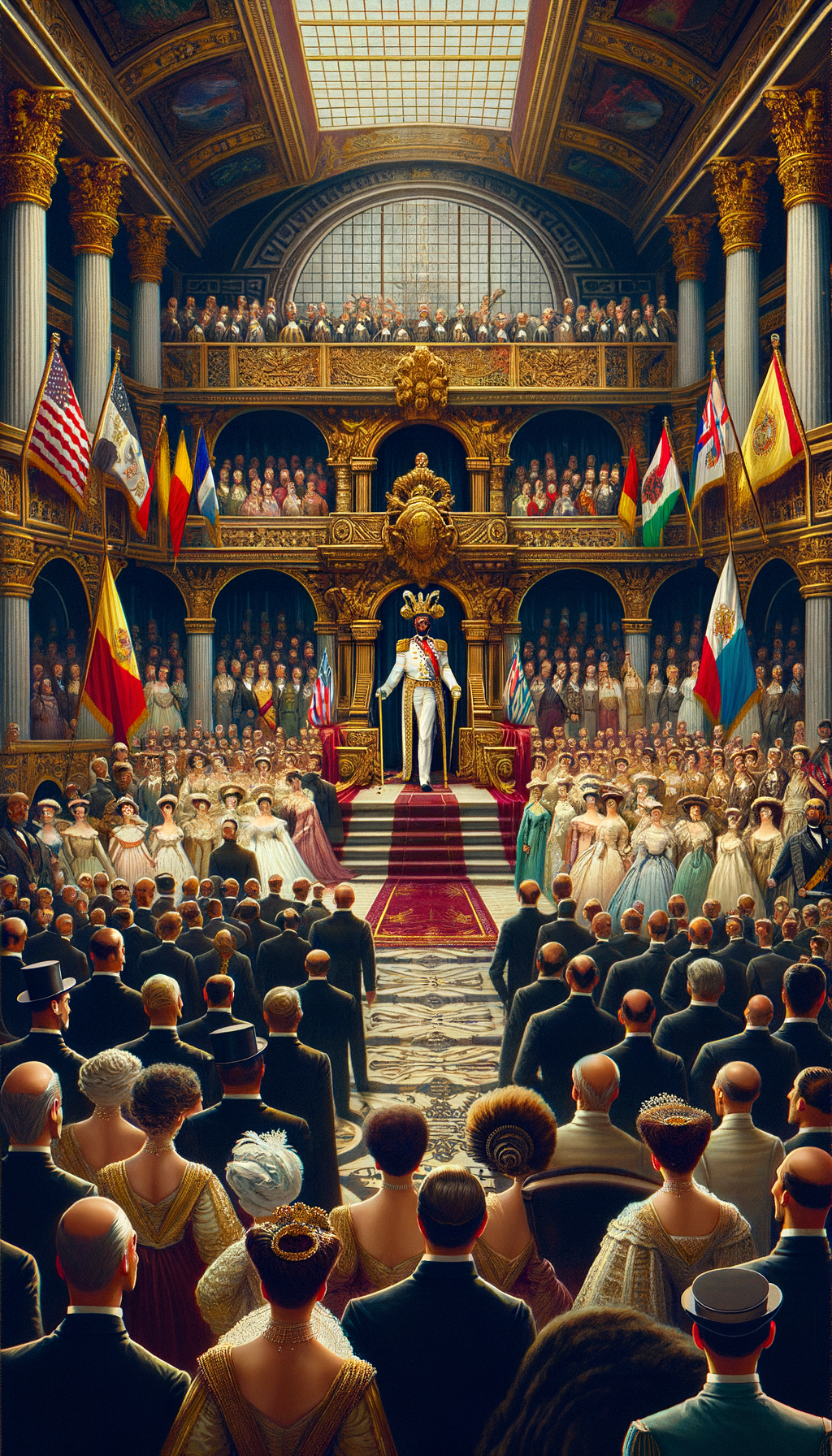Italy – The Birth of a Nation: Italy United – March 17, 1861
TLDR;
- Event: On March 17, 1861, the Kingdom of Italy was proclaimed at the Palazzo Carignano in Turin, marking the unification of Italy under King Victor Emmanuel II of the House of Savoy.
- Context: The unification was the result of the Risorgimento movement, driven by nationalism and led by figures like Giuseppe Garibaldi and Count Camillo di Cavour.
- Incompleteness: At the time of proclamation, Rome and Venetia were not part of the Kingdom; Venetia joined in 1866 and Rome in 1870, completing the unification.
- Significance: The birth of the Kingdom of Italy symbolized hope and the power of unity, setting the stage for the integration of diverse regions into a single nation.
–
Story
The air was electric with anticipation as the grand halls of the Palazzo Carignano in Turin echoed with the sound of history in the making. On March 17, 1861, a new dawn broke over the Italian Peninsula. The Kingdom of Italy was proclaimed, and the dream of a united Italy, long nurtured by patriots and visionaries, was finally realized.

For centuries, Italy had been a patchwork of competing states, duchies, and kingdoms, each with its own ruler and interests. The Risorgimento, a movement fueled by the ideals of nationalism and unity, sought to change that. It was a time of revolution, war, and diplomacy, with figures like Giuseppe Garibaldi and Count Camillo di Cavour leading the charge.
The proclamation in the Palazzo Carignano was the culmination of years of struggle and sacrifice. Victor Emmanuel II, of the House of Savoy, was declared the first king of a united Italy. The moment was both a triumph and a beginning, as the new nation faced the daunting task of integrating its diverse regions and peoples into a cohesive whole.
Yet, the unification was not complete. Rome and Venetia remained outside the new kingdom’s borders. Venetia would be incorporated into Italy in 1866 following the Austro-Prussian War and the subsequent Treaty of Vienna. Rome would not be incorporated until 1870, after the capture of Rome, marking the final act of Italian unification. But on that day in March, the foundation was laid, and the world witnessed the birth of a nation.
The Kingdom of Italy was more than a political entity; it was a symbol of hope and a testament to the power of unity and determination.
–
| Would a different approach to unification have changed the course of Italian history? |